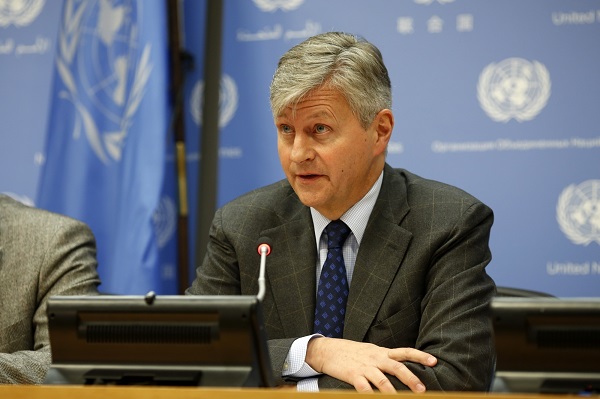United Nations, With the situation in Haiti has continued to deteriorate, the mandate of the UN peacekeeping mission in Haiti ended.
The Security Council on Tuesday held its last debate on the United Nations Mission for Justice Support in Haiti (MINUJUSTH) before it transitions to the UN Integrated Office in Haiti (BINUH), a special political mission, Xinhua news agency reported.
Jean-Pierre Lacroix, the UN undersecretary-general for peacekeeping operations, told the council that the country is facing a significant political crisis, intertwined with socioeconomic challenges.
In Haiti, protests have increased in intensity in the last few weeks. Seventeen people have been reported dead and over 200 injured in these most recent demonstrations. On Oct. 11, demonstrations became riots as protestors fought with the police and attempted to break a barricade near the presidential residence.
Several opposition groups that led the protests have said that they will not stop until Haitian President Jovenel Moise is out of office.
Noting the security situation has deteriorated in the past month, Lacroix said large segments of the population are dissatisfied with their leaders, as well as the socioeconomic situation in the country.
Lacroix noted that Jovenel Moise’s fourth government has not received confirmation in the Parliament, and legislative elections cannot take place in the current political stalemate and the stage is set for an institutional vacuum at the beginning of 2020.
UN peacekeeping in Haiti began in 2004 with the United Nations Stabilization Mission in Haiti, established in response to a deteriorating political and security situation. “The current context is not an ideal (end to) 15 years of peacekeeping in the country,” Lacroix continued, adding that the closure of MINUJUSTH does not represent the departure of the United Nations from Haiti.
On the contrary, the organization will continue to provide strong support throughout the transition to the new BINUH, he said.
The Security Council adopted resolution 2476 on June 25, which established BINUH for an initial period of 12 months from October 16.
BINUH’s mandate will include advising the government on issues related to promoting and strengthening political stability and good governance, the rule of law, an inclusive inter-Haitian national dialogue, and protecting and promoting human rights.
Also speaking at the Security Council meeting, US Ambassador to the UN Kelly Craft urged the government of Haiti and other stakeholders to take responsibility for those efforts, engaging comprehensively with the new political mission.
Pointing out that the United States remains Haiti’s largest bilateral donor, Craft urged other partners to increase investment in Haiti and all stakeholders to work together to accomplish tangible human advancement for all Haitians.
Wu Haitao, China’s deputy permanent representative to the United Nations, also called on the countries with important influence on Haiti to increase their attention to the political, economic and humanitarian situation in the country.
Noting the road to achieving stability in developing Haiti would be long and hard, Wu said China hopes the Haitian government will put the interests of the people at the top of its agenda, embark on a path of self-reliance, and effectively assume its responsibility for maintaining national security and stability and promoting economic and social development.










